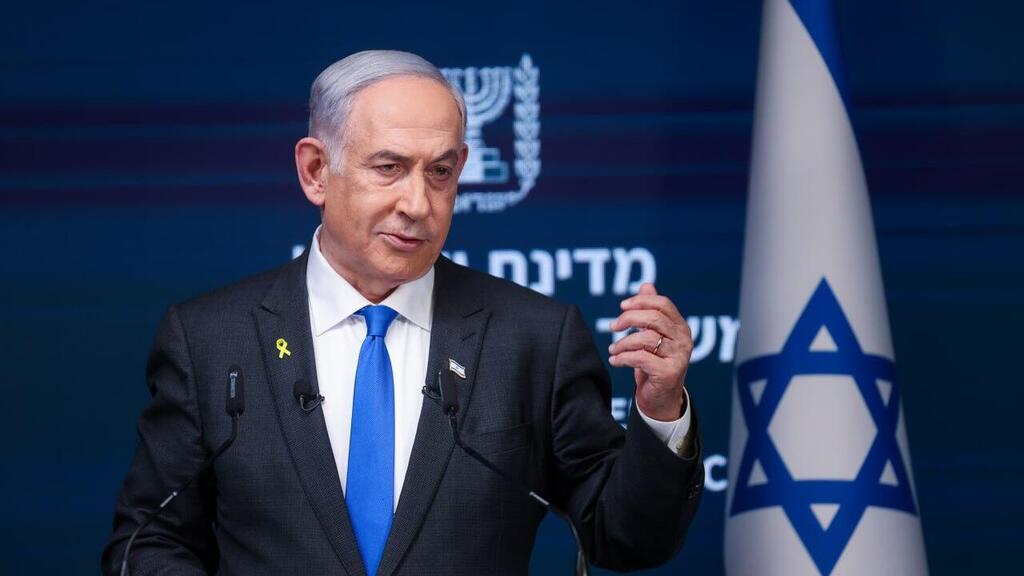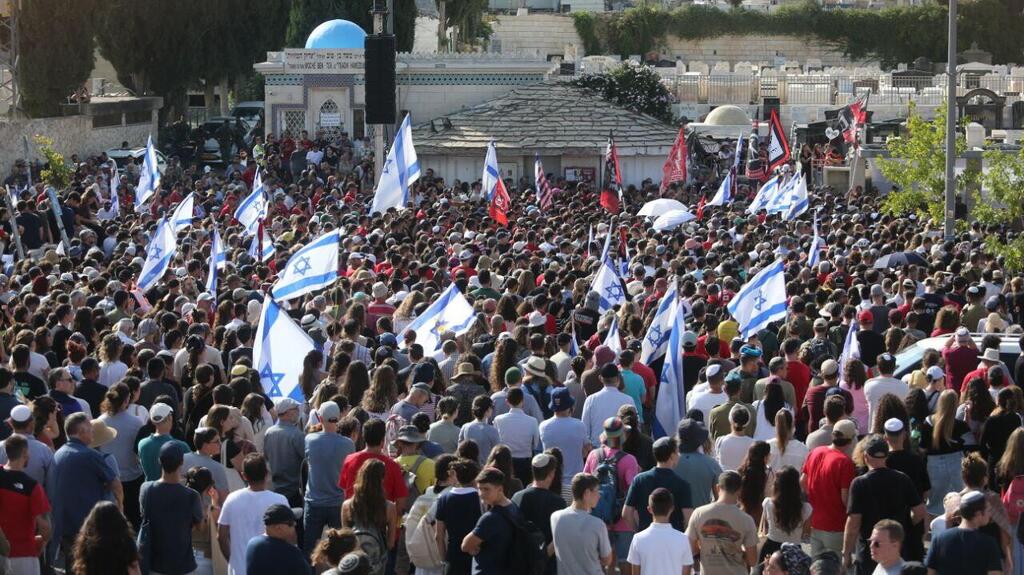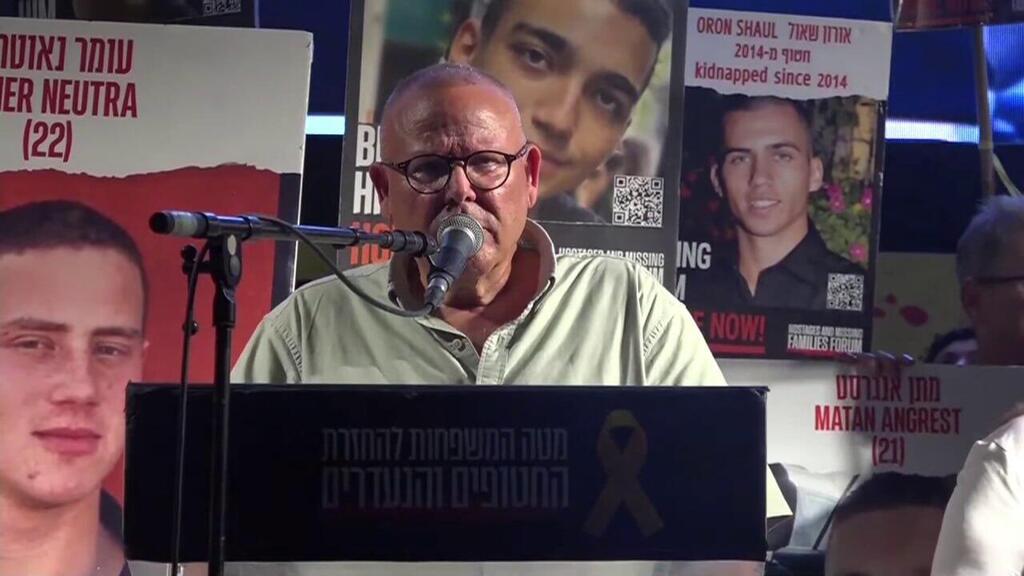Getting your Trinity Audio player ready...
Prime Minister Benjamin Netanyahu said on Monday that Israel would not withdraw from the Philadelphi corridor. In a televised address before taking reporters' questions for the first time in months, the prime minister said it took Israel 20 years to once again take control of the area which he said was where Hamas has been receiving its arms. "The importance of the corridor is cardinal to bring back hostages and ensure Hamas is never again a threat," he said adding that once the IDF took control of the area, Hamas was weakened.
He said leaving the area along the Gaza border with Egypt in 2005, was a strategic error that could not be corrected since because it would have met with international condemnation and opposition.
"What happened when we left, was that there was no obstacle for the flow of arms, weapon-producing materials, and equipment to dig tunnels, all under the auspices of Iran," he said. "Gaza became an enormous threat on Israel because there was no barrier."
The prime minister had come under heavy criticism from senior defense officials including his defense minister, for insisting on Israeli presence on the corridor, which was seen by some as an obstacle in negotiations to release the hostages abducted by Hamas over 10 months ago.
He said that Hamas could smuggle hostages through their underground system at Philadelphi, never to be seen again.
On Thursday, the IDF recovered the bodies of six hostages who were murdered by their captors in recent days, sparking mass protests and a strike called by Israel's largest labor union. Protests continued during Netanyahu's press conference after a mass protest rally on Sunday
5 View gallery
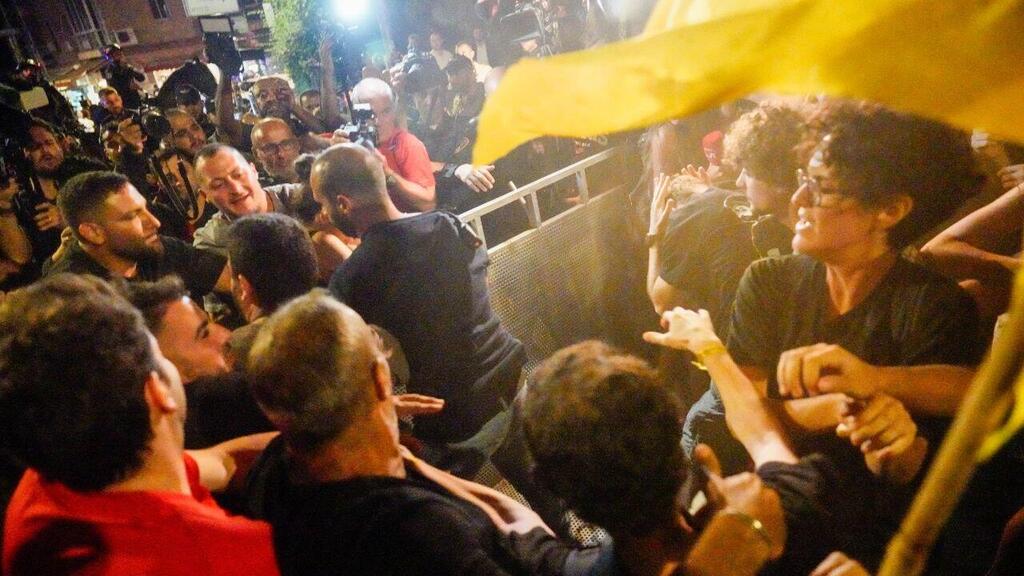

Protesters clash with police outside the Prime Minister's Residence in Jerusalem on Monday
(Photo: Shalev Shalom)
Netanyahu said he had spoken with some of the families of the slain hostages and apologized to them for failing to save their loved ones.
But he criticized the protesters whom he said were doing Hamas's bidding. He showed the reporters a document he said was found by troops in Gaza, prepared by Hamas and dealing with how to cause fracture in Israeli society to further weaken the country. "To win this war we must be united as one in the face of an enemy set out to destroy us," he said.
The prime minister said Israel must remain in Gaza to ensure Hamas does not rebuild its military strength and can no longer rule over the Strip. He said in the future, that task may be given to others.
After U.S. President Joe Biden said early on Monday that he was not doing enough to secure the release of hostages, Netanyahu said that pressure must be put on Hamas and not on Israel.
He counted the many times the United States praised Israel for showing flexibility in the negotiations, making concessions and accepting the proposals of mediators including the Americans starting with the proposal of May 31, through the final bridging proposal of August 16 and quoted statements made by U.S. Secretary of State Antony Blinken and Deputy CIA chief David Cohen who said the Israelis were showing seriousness in the negotiations just last week.
"So what has changed since then?" he asked. "Hamas executed six of our hostages. They were shot in the back of the head and after this Israel must make concessions?"
Eariler, Netanyahu rebuked the labor union strike, telling ministers during a cabinet meeting, “It's a disgrace. This is like telling Sinwar, ‘You killed six people, and here we are, supporting you.’”
In his first remarks on the strike, Netanyahu directed his anger at the strikers, showing no indication of reconsidering the cabinet's decision despite Defense Minister Yoav Gallant's request. “We must remain in the Philadelphi Corridor; it is crucial for Israel’s security,” Netanyahu said. “If we leave now, it will be difficult to return. This is a critical time in the war to hold the corridor, or we won’t be able to achieve our war objectives.”
5 View gallery
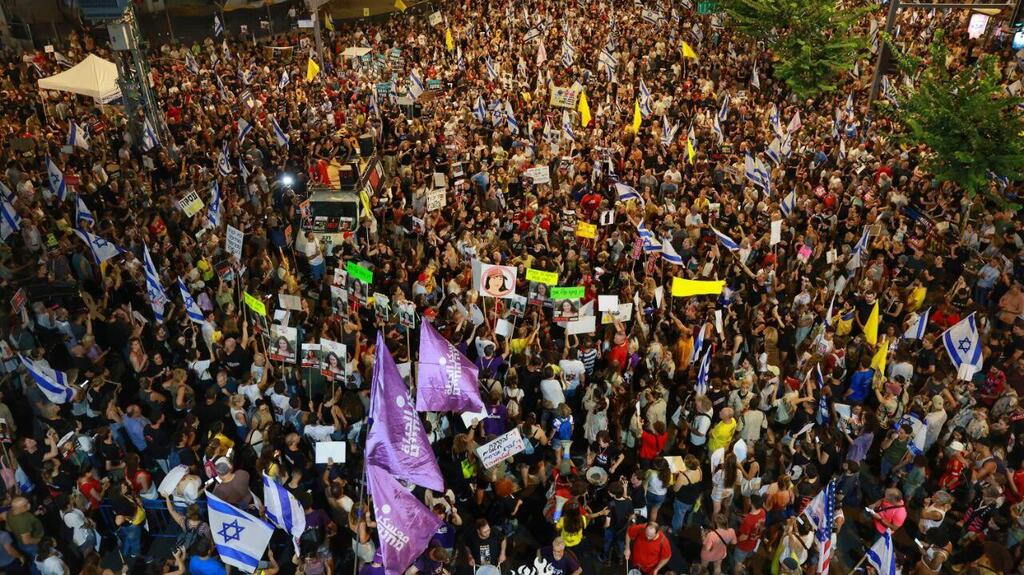

A mass protest calling for the release of hostages in Tel Aviv on Sunday
(Photo: Dana Kopel )
The strike, which has since ended following a ruling by the labor court, was declared after the bodies of hostages were found, coinciding with the government's decision to remain in the Philadelphi Corridor. On Sunday, mass protests took place in central Tel Aviv and other locations in what has become the largest demonstration since the war began.
Netanyahu also launched a personal attack on Histadrut Chairman Arnon Bar-David. “It’s a disgrace, we are at war. Bar-David is strengthening Sinwar with this strike, as if they’re telling him, ‘Go ahead and kill, we’re with you,’” Netanyahu stated. In response, Communications Minister Shlomo Karhi remarked, “It’s a weak strike.” Netanyahu replied, “Well, he probably consulted with his wife.”
The prime minister affirmed that “Hamas will pay a price for the murder of the hostages. This will not go unpunished.” He added that until now, the focus of efforts against Hamas had been military, but going forward, the focus would shift to dismantling its governance capabilities. He mentioned changes in food distribution and humanitarian aid as part of this new strategy.
Netanyahu spoke at length about the importance of Israel's presence in the Philadelphi Corridor, saying, “We are not leaving. This is a strategic, existential issue for Israel. If we leave now, we won’t return—not in 42 days, not in 42 years. This is Hamas’s lifeline. Are we going to let them rearm and slaughter us again? Anyone who wants us to leave the Philadelphi Corridor undermines the war's objectives. Did our soldiers fall in vain, only for us to let Hamas rebuild?”
In response to Netanyahu’s remarks, the Histadrut released a statement saying, “The prime minister’s comments on the solidarity strike are further evidence of his disconnect. His inflammatory claim that the call to bring home hostages suffering in Gaza supports Sinwar is an attempt to distract the Israeli public from who it was that funneled billions of dollars to Hamas in suitcases. The prime minister, under whose watch the greatest disaster to befall the Jewish people since the Holocaust occurred, would do better to focus his efforts on bringing our sons and daughters back alive—not in body bags.”


